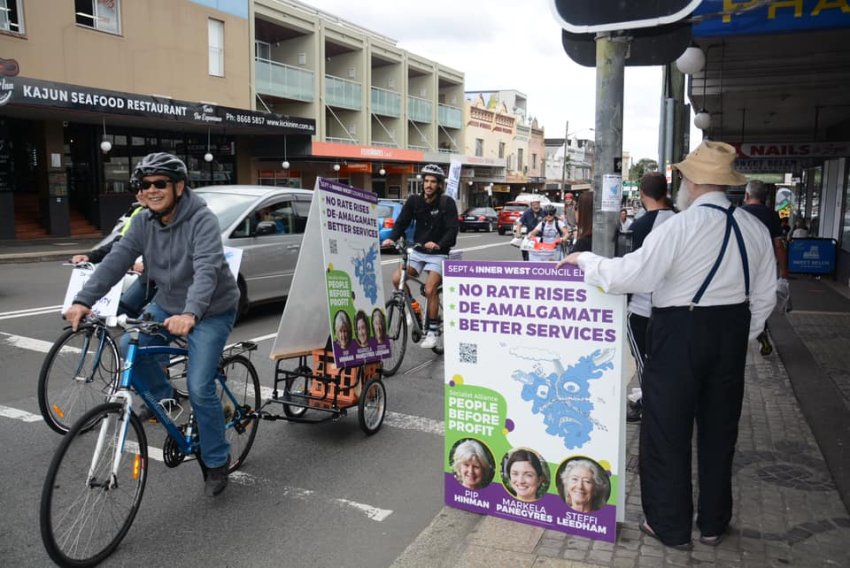
The campaign for the de-amalgamation of three Inner West councils is gaining traction in the lead-up to council elections on September 4.
Dissent against the 2016 forced amalgamation of the giant Inner West Council continues, particularly as rates will rise by hundreds of dollars in the former Marrickville Council area.
The Coalition state government knows that the dissent is spread across Liberal- and Labor-aligned councils and its amendments to the Local Government Act now outlines a process for councils to de-amalgamate.
The amendments to the Act were finally passed by the Legislative Assembly on May 13. Interestingly, they accepted a Labor amendment for an 8-year phase-in of the rate harmonisation of the merged councils, rather than the government’s preferred 4-year period.
The Act also creates a new process for councils to push for de-amalgamation. It requires the NSW government to refer such a request (with a business case) from a council within 28 days to the NSW Boundaries Commission. However, it does not have to accept the Boundaries Commission recommendation.
Pip Hinman believes that the amendments seek to placate popular opposition to the forced amalgamation of several councils, including in the Inner West Council. Hinman is the lead candidate for the Socialist Alliance team who is running for the Inner West Council in Damun (Stanmore) ward.
“The bureaucratic process it offers does not change the fact that, ultimately, it is still up to the NSW government to decide to de-amalgamate or not, even if the Boundaries Commission recommends de-amalgamation.
“This means that for a de-amalgamation of several councils to succeed, a campaign in which the community has a direct say is necessary. Only this will increase the pressure on the NSW government.
“This is why we are urging councillors to move for a poll of residents on the question of the forced amalgamations on September 4.”
Hinman and fellow Socialist Alliance candidates Markela Panegyres and Steffi Leedham have taken part in two community bike rides to raise the issue of de-amalgamation with residents. The first was held in Newtown on February 27 and the latest in Petersham on May 15.
“On both bike rides we registered strong community support for de-amalgamation. People were cheering and clapping as we rode by. At stalls we have had in Newtown, Enmore and Petersham many people have come up to us and said that they want a smaller, more representative and community empowering council.”
Hinman said she had also been speaking to many Inner West councillors who oppose the forced amalgamations and had indicated that they would support such a poll.
“However, since the changes to the Act, some now say that a residents’ poll is no longer necessary. They seem to have decided to place their hopes back to the same government which forced the amalgamations through in the first place.
“Our community must have a say,"Hinman said. "Leaving the matter to another bureaucratic ‘community consultation’ process (like the ‘consultation’ over rate rises when just 7000 people from some 200,000 people responded) will not be enough to build up the necessary community pressure on the NSW government to agree to de-amalgamate the Inner West Council.”
The NSW Electoral Commission can undertake a special poll of residents on any matter at election time. Such a poll on de-amalgamation would help the campaign for smaller, accessible councils and it may also come up with other ideas for better representation of residents’ concerns.